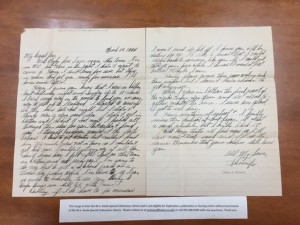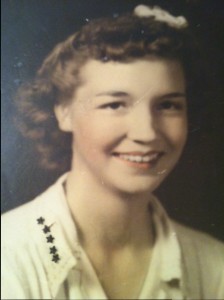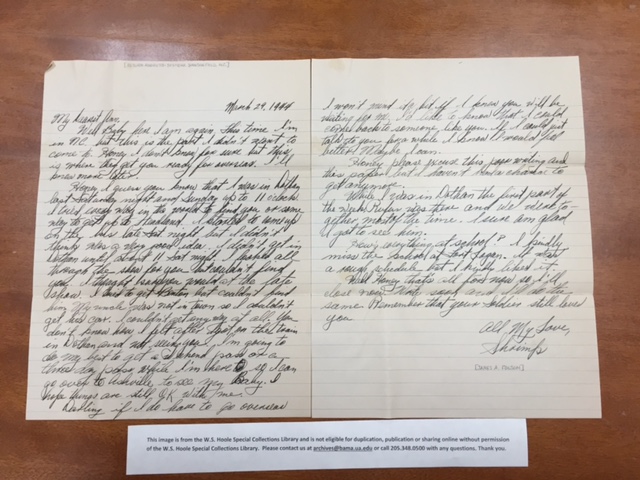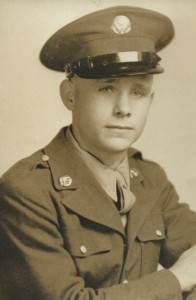
Ann Hollis, a native of Headland, Alabama, exchanged love letters to her husband while he was overseas during WWII. A collection of their letters can be found in the W.S. Hoole Special Collections Library.
“Remember that your soldier still loves you,” wrote Ann Hollis’ husband from a training camp in North Carolina as he was preparing to travel overseas during World War II (the picture shown above is one of many letters written to his wife found in the W.S. Hoole Collection). Much like this solider who found himself suffering from heartbreak and exhaustion, my great-grandfather, Fred Lamar, dealt with grief by writing intimate letters to my great-grandmother, Frankie Lee. Although the letters are hidden somewhere in my great-grandmother’s heart, I know Fred wrote the same kind of words.
Fred and Frankie, high school sweethearts, married at age 17. After graduating, they moved to Montgomery, Alabama, where Fred worked for a phone company installing wire. He was drafted into the Signal Corps at age 19 since he had experience with mounting communication lines. Frankie was heart broken when my great-grandfather left, so she moved back in with her parents in Attapulgus, Georgia, and for the next three years, Frankie waited impatiently by the mailbox.

My great-grandmother, Frankie Lee, was photographed wearing my great-grandfather’s stars during wartime.
She wrote him religiously. According to my grandmother, her mother wrote her father every day despite his delayed responses. One of the first letters she wrote was to inform him that she was pregnant with my great-uncle. Frankie expressed to me that he wrote back from training camps, barracks, and bunk rooms- anywhere he could catch his breath. Fred asked about how her pregnancy was going, and how much he missed and loved her, how she was the only thing that kept him motivated to stay alive. As seen in her portrait, she wore his stars on her shirt collar to show commitment and patriotism.
During the second year of Fred’s absence, however, she said the letters she wrote lost their symbol of hope: she felt that the chances of him returning alive kept getting smaller and smaller. She told herself that she could not expect the same lively, handsome young man to come back after witnessing such horrific scenes. In some ways, she was right.
When Fred returned home, he moved back in with Frankie in Attapulgus, where he took a job at a chalk mine. Unfortunately, he suffered from Post-traumatic stress disorder and never recovered. At times, he would wake up screaming in the middle of the night, frightened by the trauma he had encountered. My grandmother was born amidst Fred’s issues, and they soon moved to Milledgeville, Georgia, where the rest of my mother’s family resides today.
Although the youthful man pictured returned home worn and traumatized, his love for Frankie had not changed. Despite the hardships Fred had gone through, Frankie stood by his side and helped him cope with poor mental health until the day he died. By watching her mother love her father unconditionally, my grandmother realized that true love does not fail. My grandmother, Mamie, whom I look up to with great admiration, taught my mother that love and marriage should be honored with loyalty. Because of Fred and Frankie’s devotion to one another, my sisters and I, too, were raised to believe that true love is a promise that should never be broken.
Works Consulted:
Ann Hollis. Guide to the Ann Hollis Letters, 1943-1946. Headland, Alabama: Suzanne Rocky, 1999. First Edition.

